GED GED-Reading GED Reasoning Through Language Arts Exam Practice Test
GED Reasoning Through Language Arts Questions and Answers
-- Exhibit–
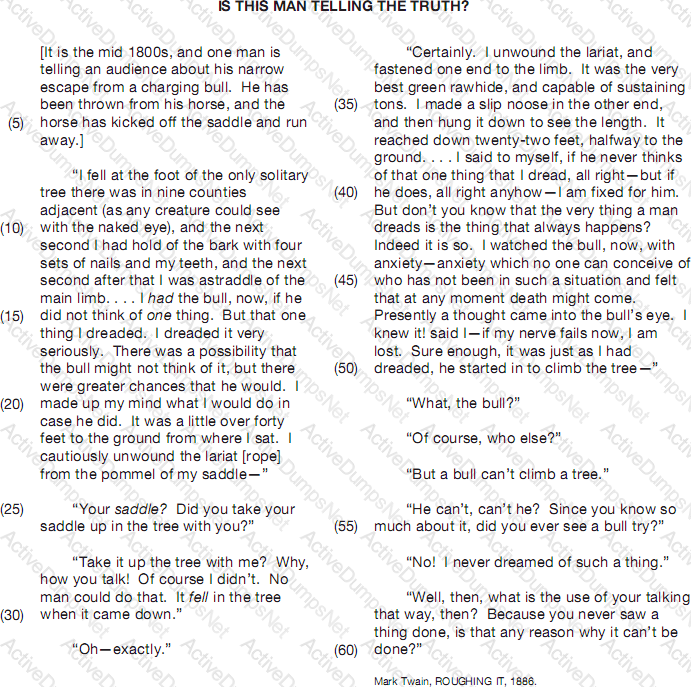
-- Exhibit --
The narrator obviously has a clever argument prepared to answer the objections of his audience to the idea of a bull climbing a tree. What technique does the narrator use in his argument (lines 54–60)?
-- Exhibit–
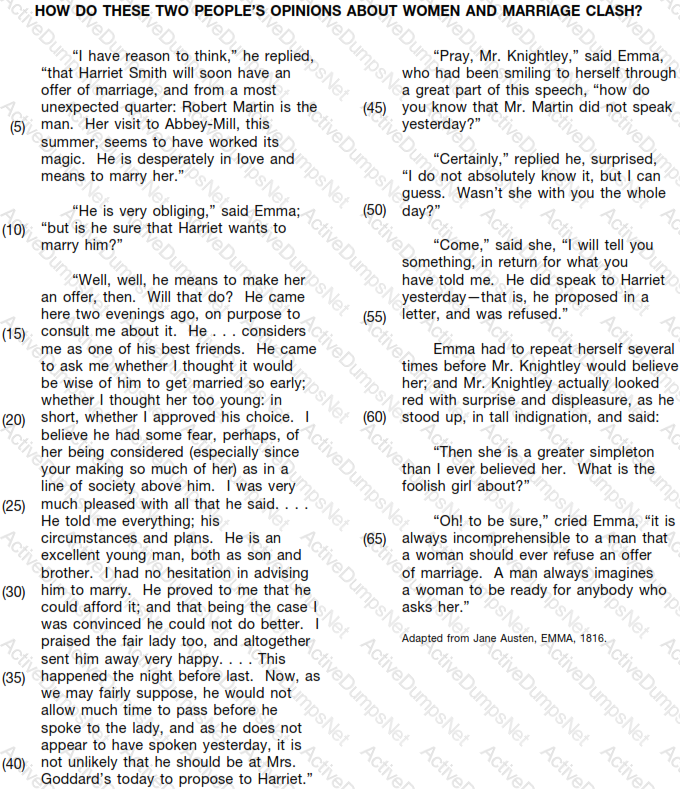
-- Exhibit --
Suppose that the same events as depicted in this excerpt were to take place in today’s society. Which one of the following changes in the excerpt would probably be necessary?
-- Exhibit–
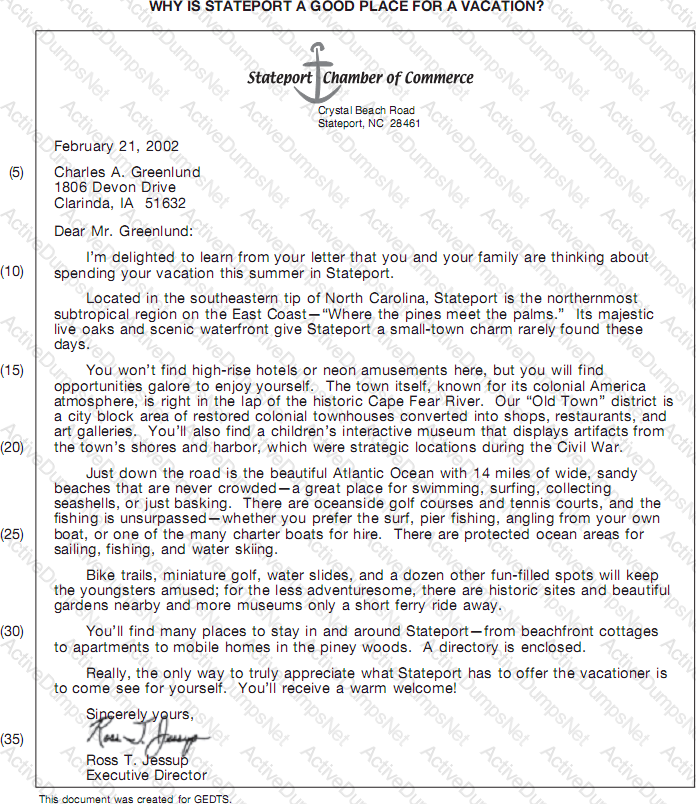
-- Exhibit --
Last year, Stateport suffered through a major hurricane that destroyed many homes and businesses and evacuated would-be vacationers.
How does this information affect how the reader might view this letter?
-- Exhibit–
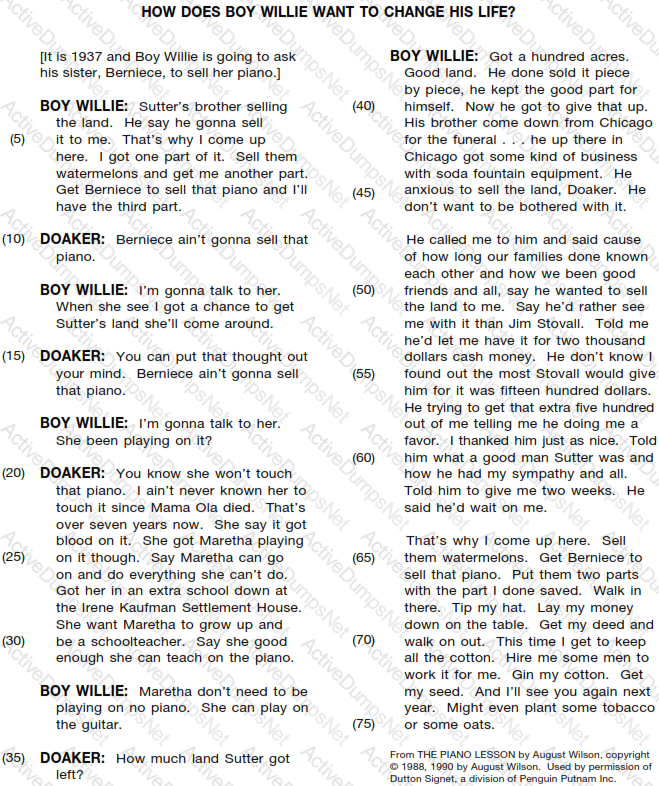
-- Exhibit --
Which one of Berniece’s character traits is revealed when doaker says twice that "Berniece ain’t gonna sell that piano" (lines 10-11 and 16-17).
-- Exhibit–
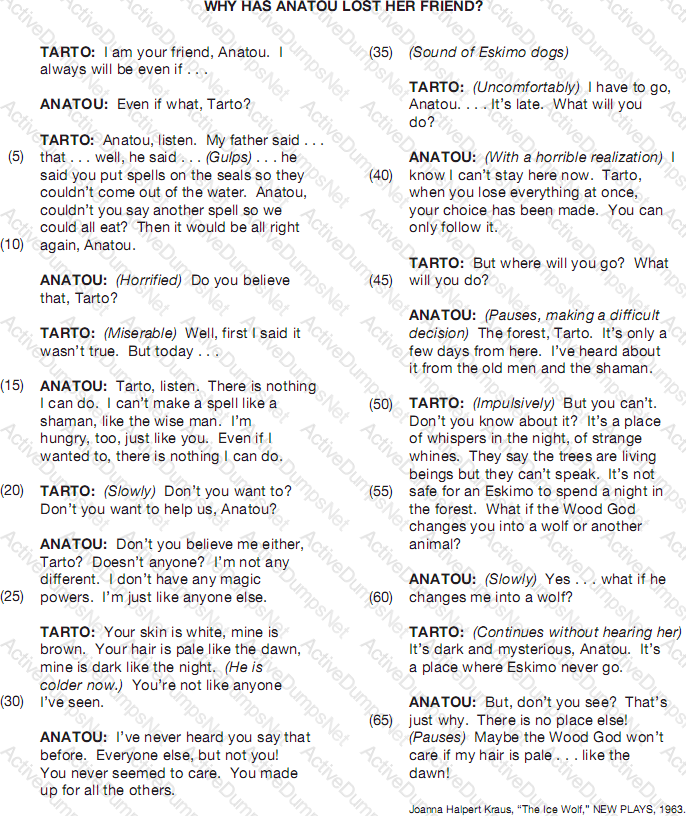
-- Exhibit --
Anatou says that Tarto’s indifference to her pale skin and light hair “made up for all the others” (lines 33–34). What does she mean?
-- Exhibit–
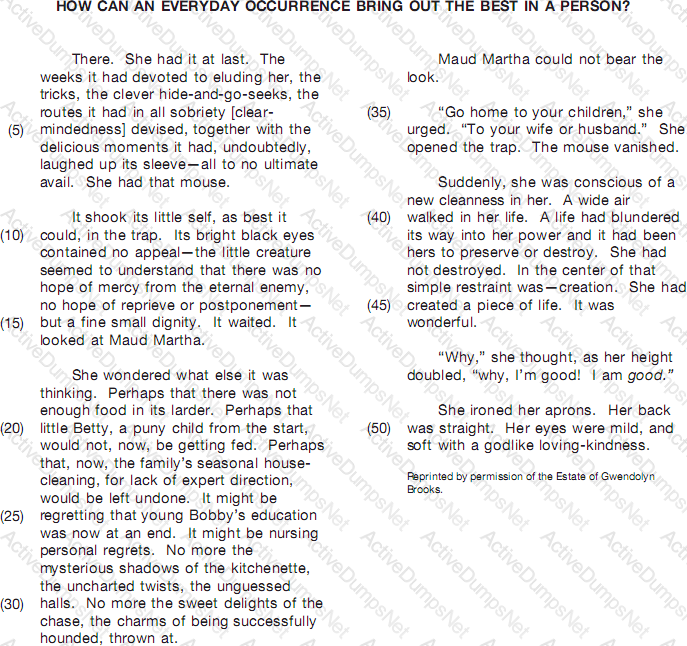
-- Exhibit --
The second paragraph, lines 9–16, describes the mouse’s reaction to being in the trap. What does this description suggest about the mouse?
-- Exhibit–
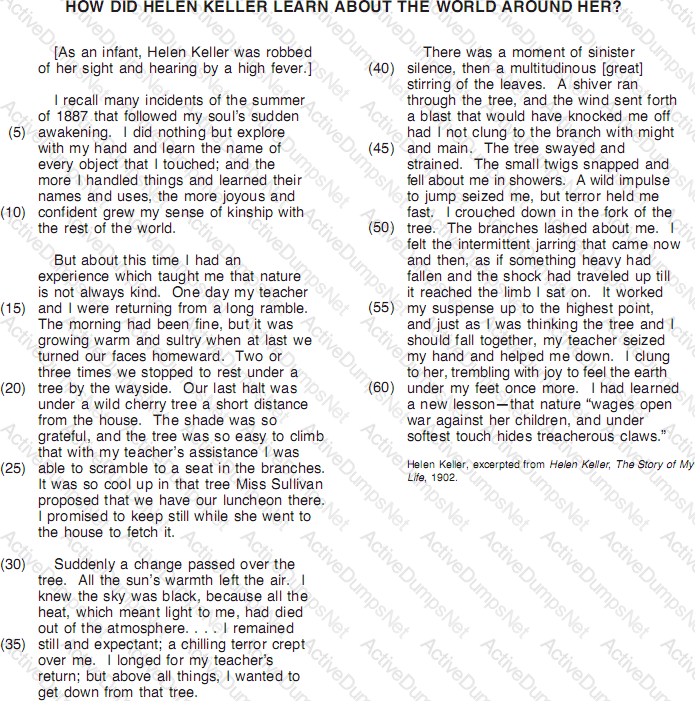
-- Exhibit --
How does Helen Keller characterize herself at the beginning of the excerpt?
-- Exhibit–
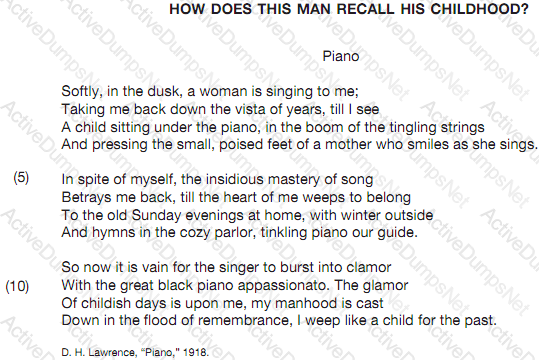
-- Exhibit --
On the basis of the speaker’s reaction to the piano performance, what aspect of the performance might the speaker comment upon to other people?
-- Exhibit–
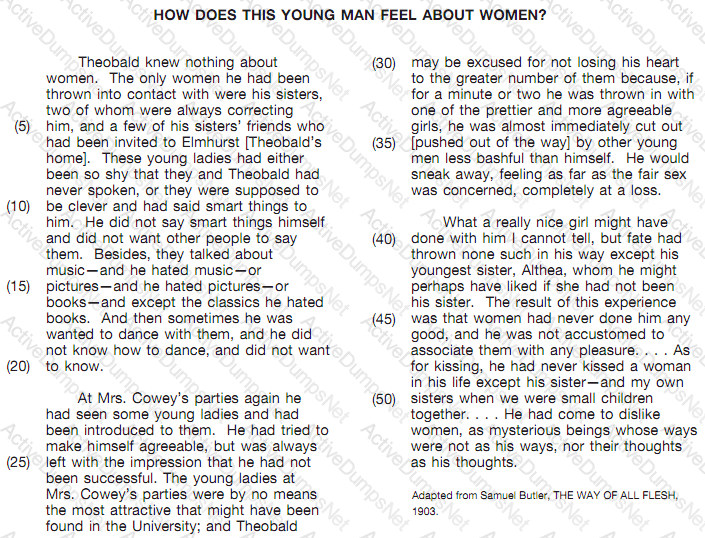
-- Exhibit --
At Mrs. Cowey’s parties, Theobald "was almost immediately cut out by other young men less bashful than himself" (lines 34–36) if he ever got near a pretty girl. What does this fact imply about his relationship with the other young men?
-- Exhibit–
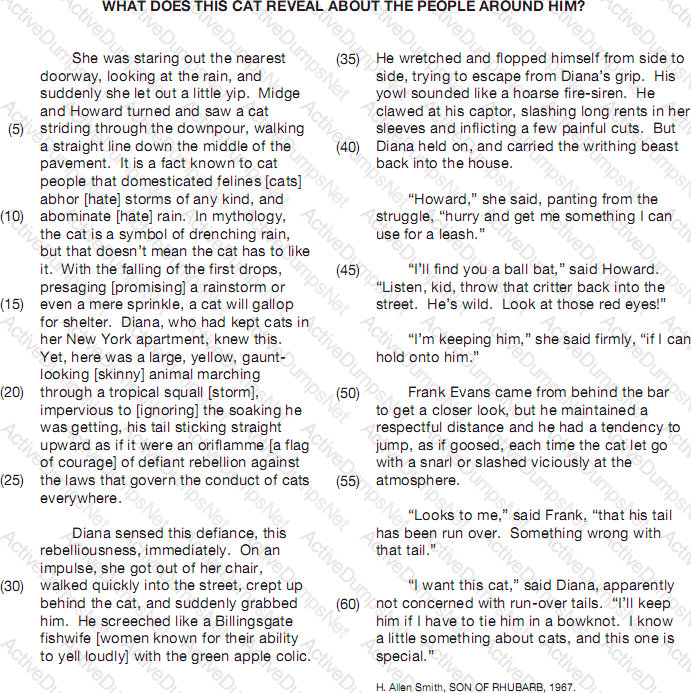
-- Exhibit --
The cat in this excerpt clearly expresses his feelings to Diana when she catches him. Which one of the following people probably feels the same way as the cat?
-- Exhibit–
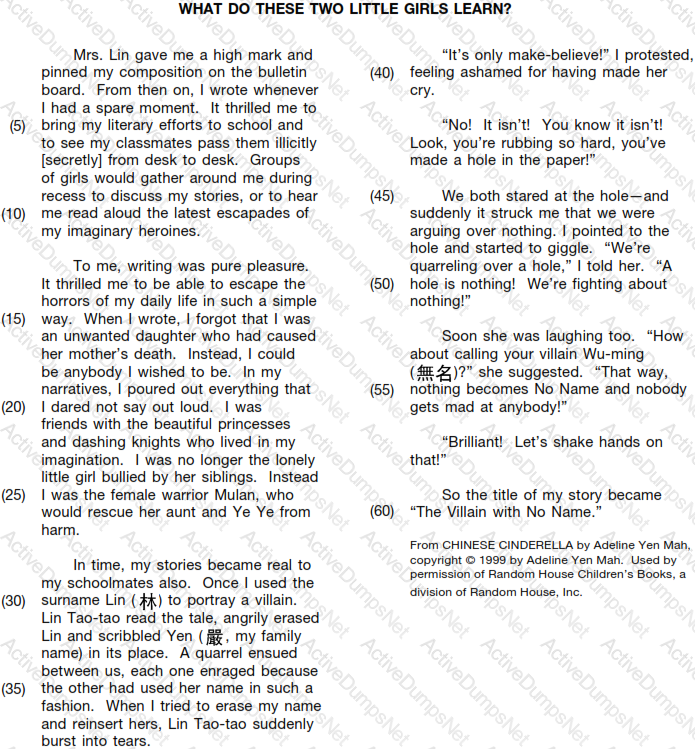
-- Exhibit --
In line 12, the narrator describes writing as "pure pleasure." What reason does she give for this statement?
-- Exhibit–
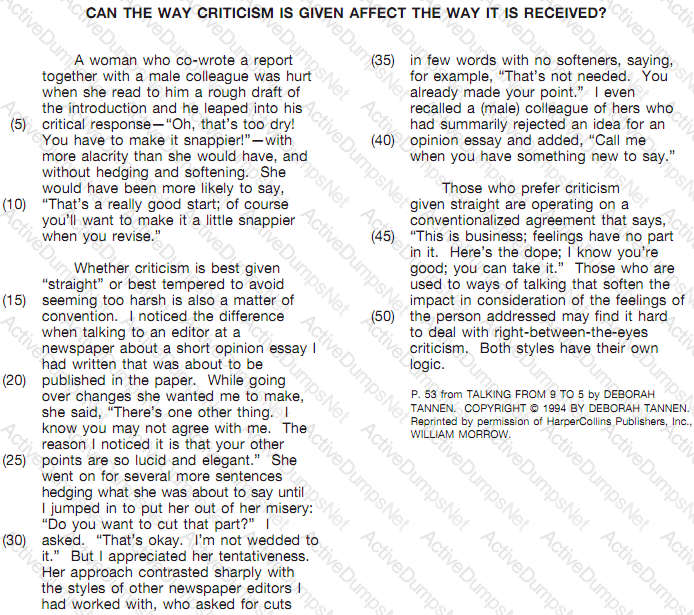
-- Exhibit --
Why does the editor (line 27) of a newspaper hedge about the changes in an opinion essay the author has written?
-- Exhibit–
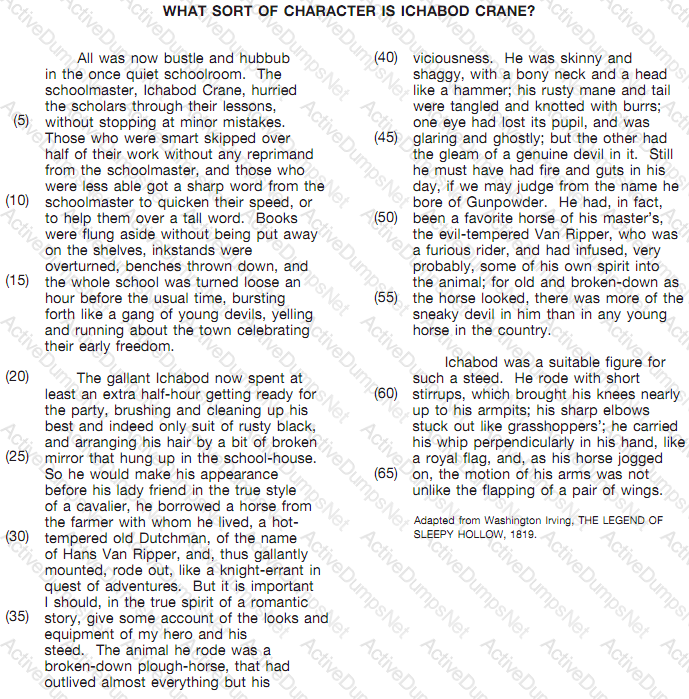
-- Exhibit --
Ichabod wanted to appear "in the true style of a cavalier" (lines 27–28) and "rode out, like a knight-errant" (line 32). What do these details indicate about how Ichabod wants to appear?
-- Exhibit–
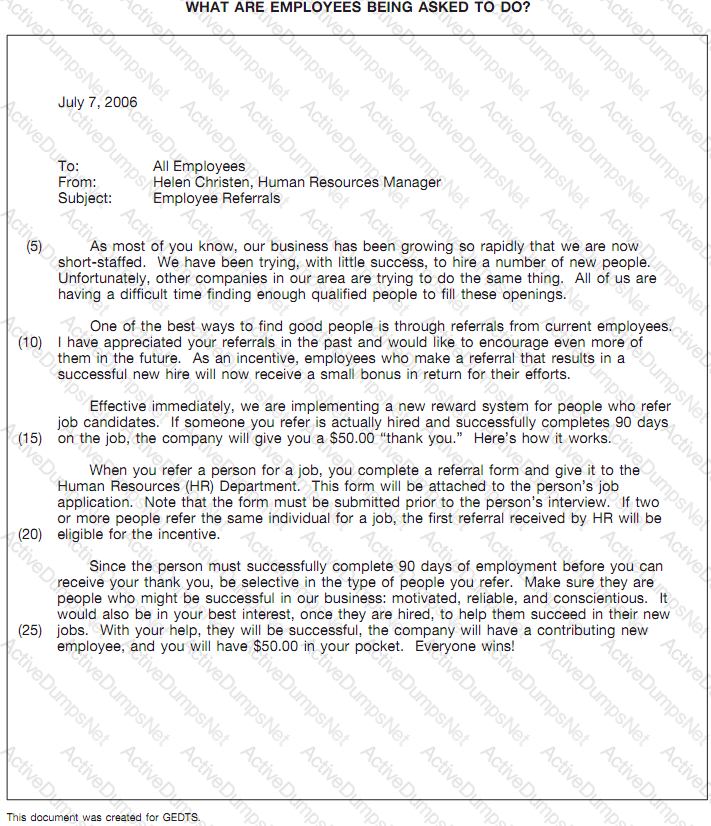
-- Exhibit --
Helen Christen, the Human Resources Manager, is relatively new at her job and has already implemented several new policies to support employees, such as child-care leave and GED classes.
How might this additional information affect how employees receive this memo?
Exhibit:
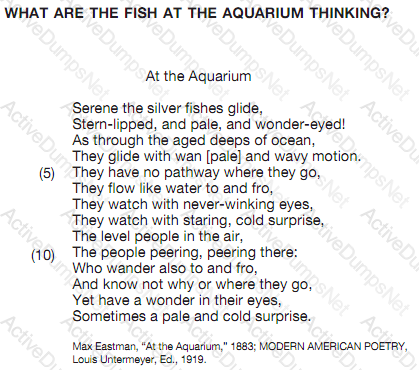
What feeling does the speaker attribute to the fish by calling them "wonder-eyed" (line 2)?
Exhibit:
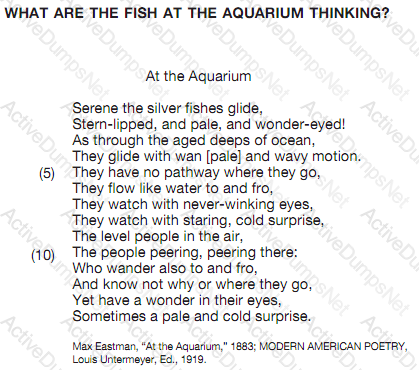
Why do the people appear "level . . . in the air" (line 9) to the fish?
-- Exhibit–
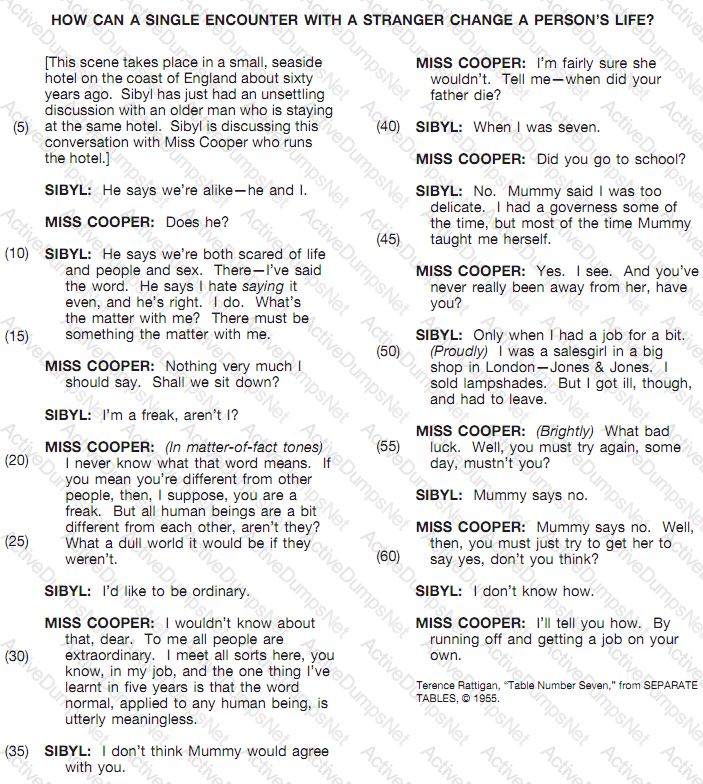
-- Exhibit --
Earlier in the play, the reader learns that Sibyl is 33 years old. How does this additional information affect the way the reader understands Sibyl's problem?
-- Exhibit–
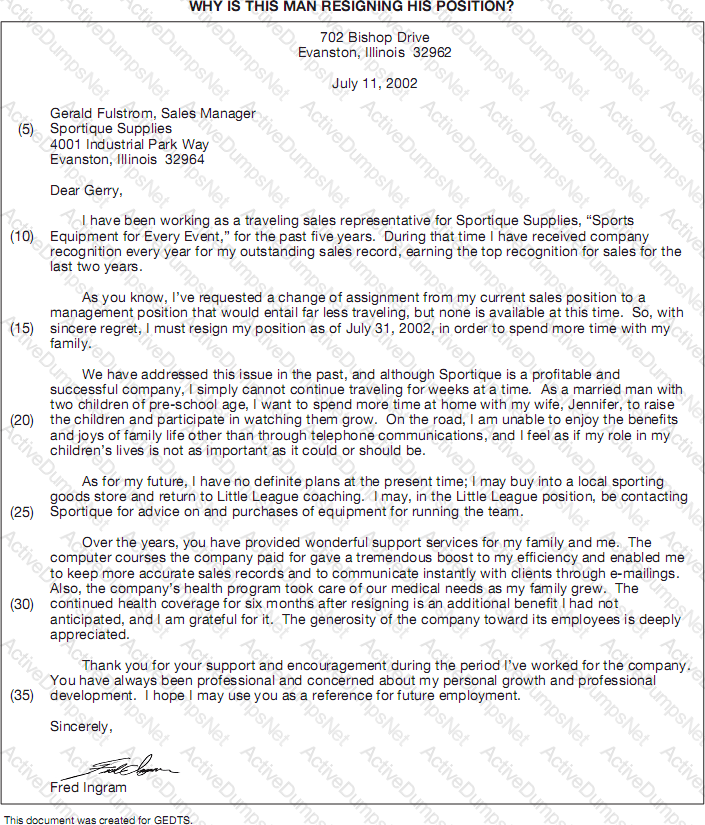
-- Exhibit --
Why is Fred Ingram resigning his position at Sportique Supplies?
-- Exhibit–
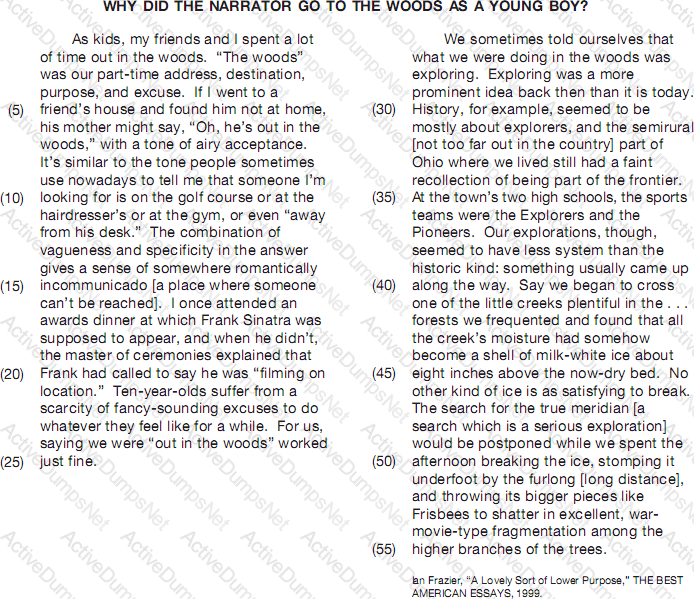
-- Exhibit --
This excerpt is from an essay titled, “A Lovely Sort of Lower Purpose.” Based on the title and the example described in this excerpt, what is a “lower purpose”?
-- Exhibit–
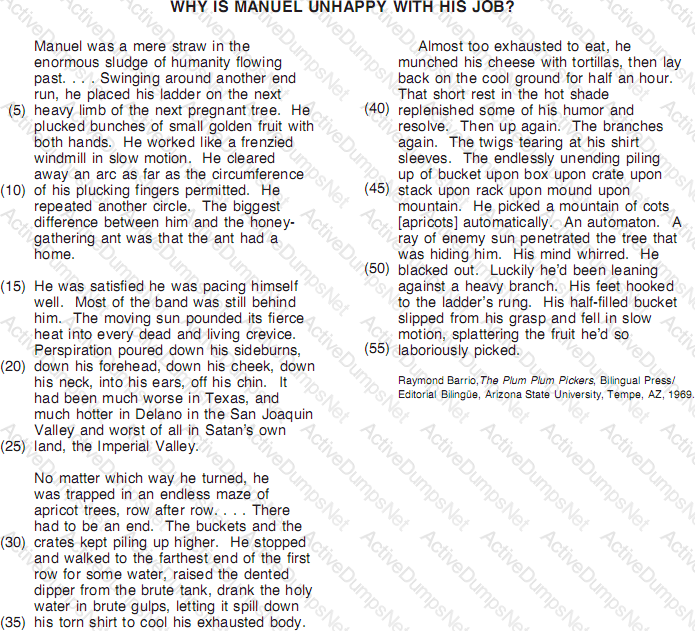
-- Exhibit --
What does the author imply by the phrase “A ray of enemy sun” (lines 47–48)?
-- Exhibit–
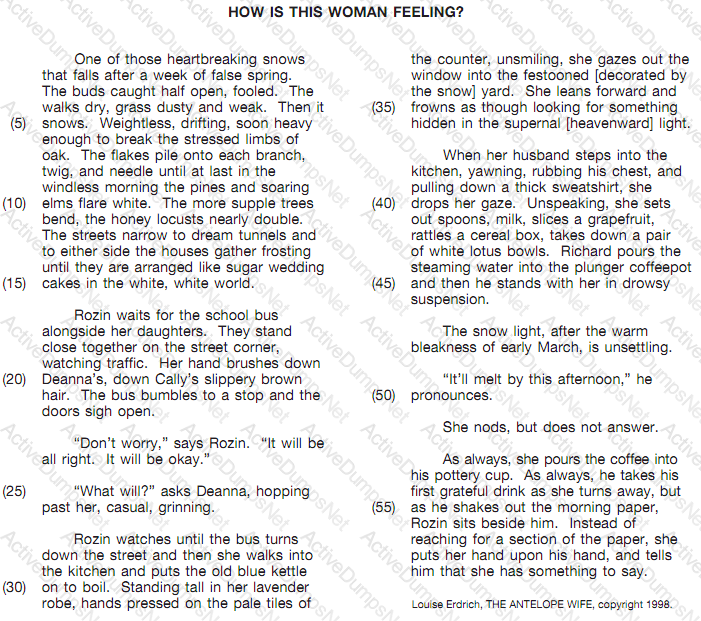
-- Exhibit --
Which action signals that Rozin’s morning routine is different than usual?
-- Exhibit–
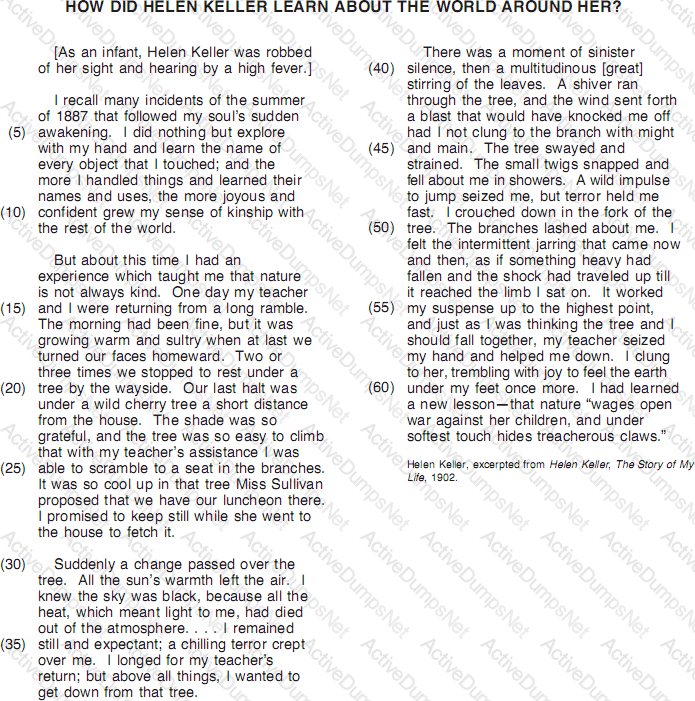
-- Exhibit --
“Nature ‘wages open war against her children, and under softest touch hides treacherous claws’ ’’ (lines 61–63). Why did Helen Keller use this quotation in her account?
-- Exhibit–
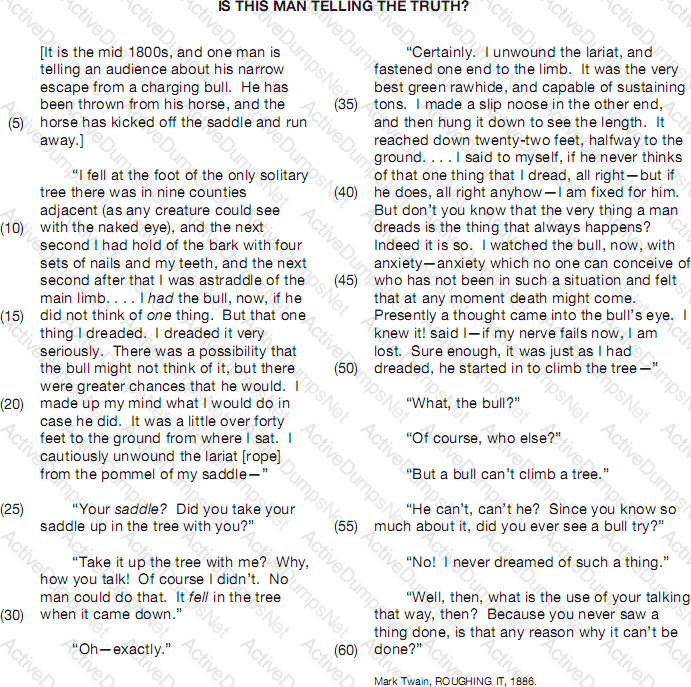
-- Exhibit --
Why does the narrator wait so long to tell the audience that the one thing that he fears the bull will do is climb the tree?
-- Exhibit–
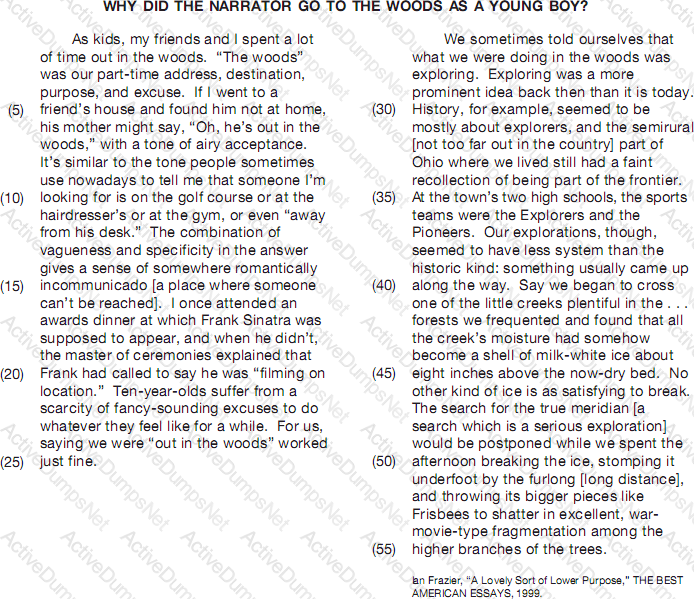
-- Exhibit --
According to the narrator, what did ten-year-olds of his day use as an excuse when they wanted to play?
-- Exhibit–
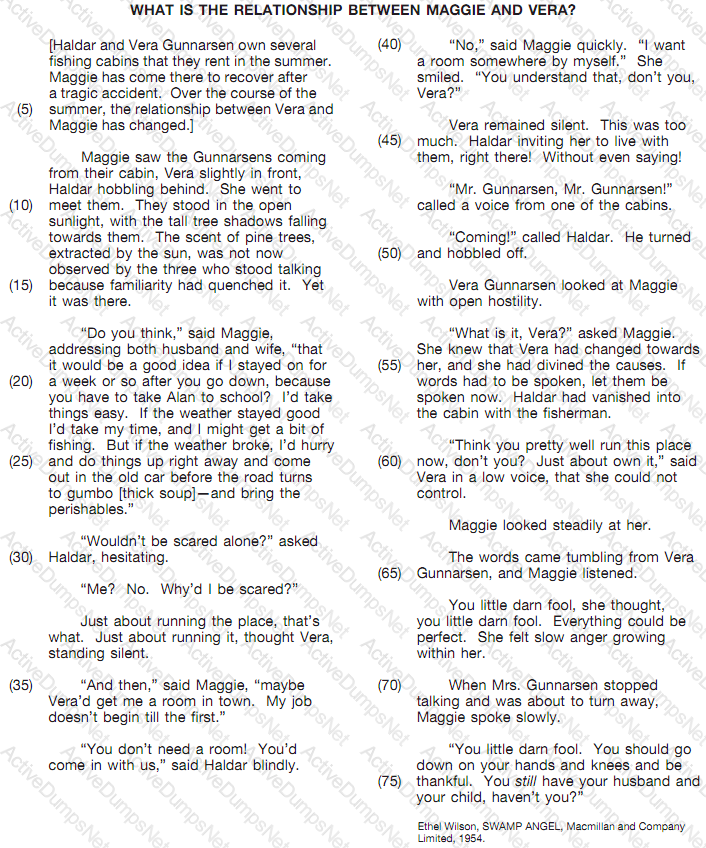
-- Exhibit --
Based on Vera’s reaction to Maggie and what the reader can guess about Maggie from her last words in this excerpt, what isMaggie’s goal?
-- Exhibit–
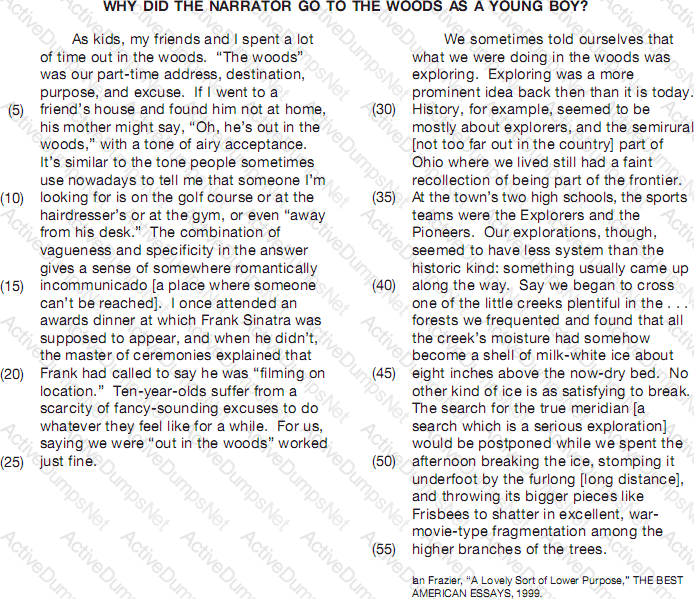
-- Exhibit --
Based on the information in this excerpt, what opportunity do ten-year-olds value?
-- Exhibit–
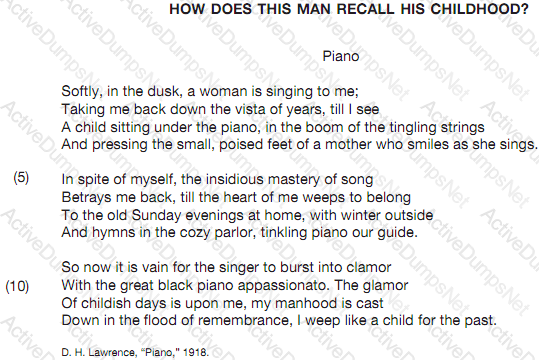
-- Exhibit --
What does the speaker of the poem associate with singing and the sounds of a piano?
Exhibit:
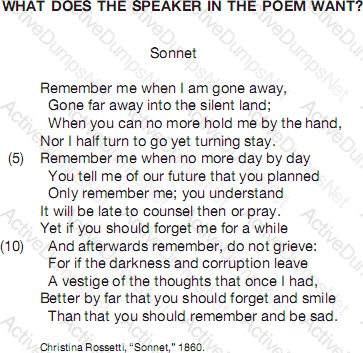
What is the speaker referring to when she says she will be “Gone far away into the silent land” (line 2)?
-- Exhibit–
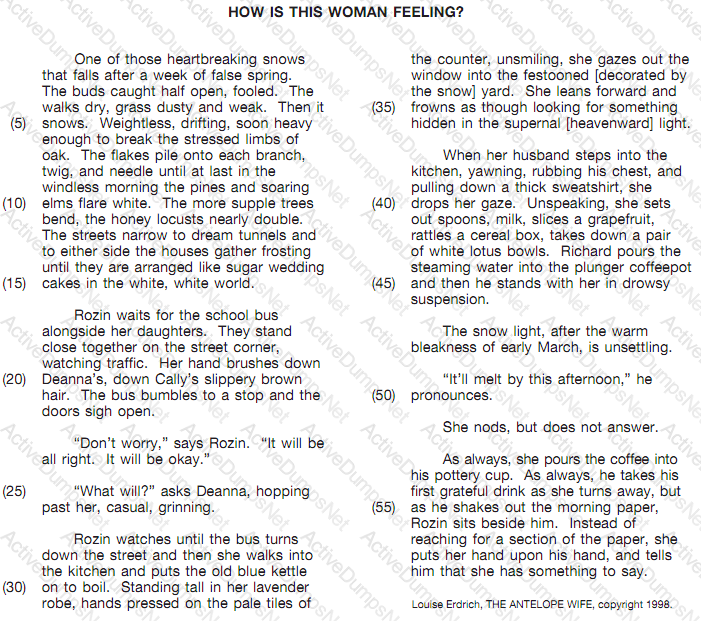
-- Exhibit --
The narrator describes how the heavy snow will break some trees and how the more flexible trees will bend with the weather (lines 10–11).
What might the trees in this excerpt symbolize?
-- Exhibit–
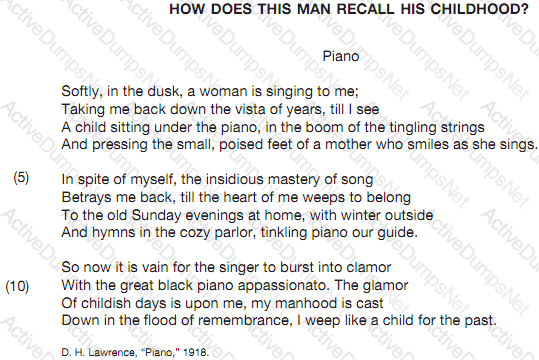
-- Exhibit --
In the second stanza, the speaker says that "the insidious mastery of song / Betrays me back" (lines 5–6). What do these lines mean?
-- Exhibit–
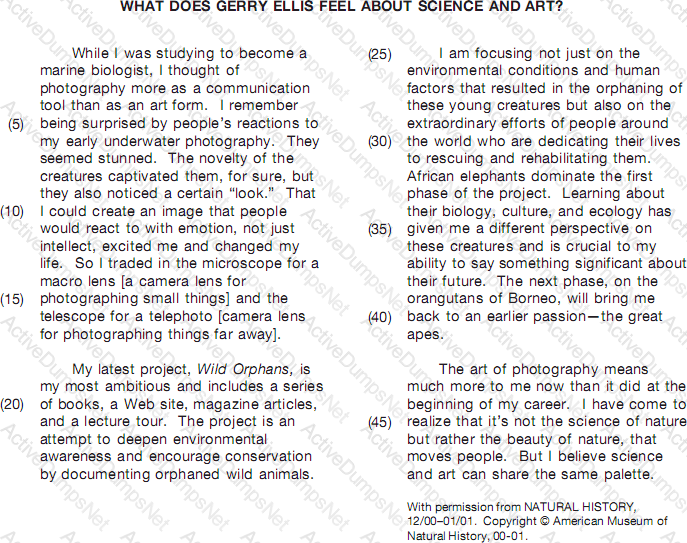
-- Exhibit --
Gerry Ellis says that the next phase of Wild Orphans will be “on the orangutans of Borneo” (lines 38–39). What does Gerry Ellis also say in this excerpt that leads the reader to understand that he has worked with great apes before?
-- Exhibit–
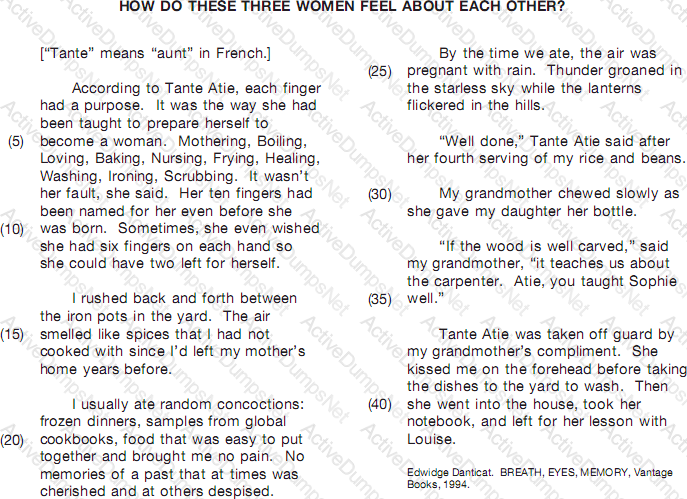
-- Exhibit --
Based on the narrator’s character as revealed in the excerpt, what would she most likely do if Tante Atie became ill?
-- Exhibit–
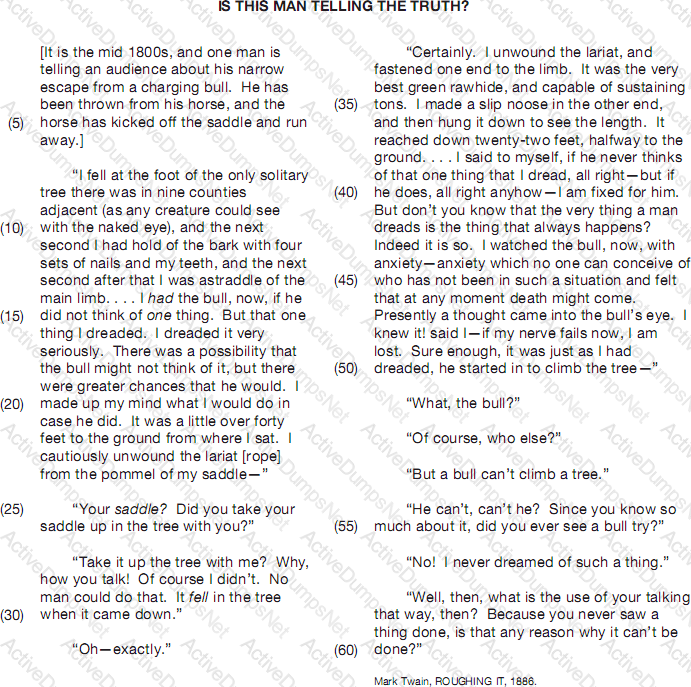
-- Exhibit --
As a child, how did the narrator probably behave when caught doing something wrong?
-- Exhibit–
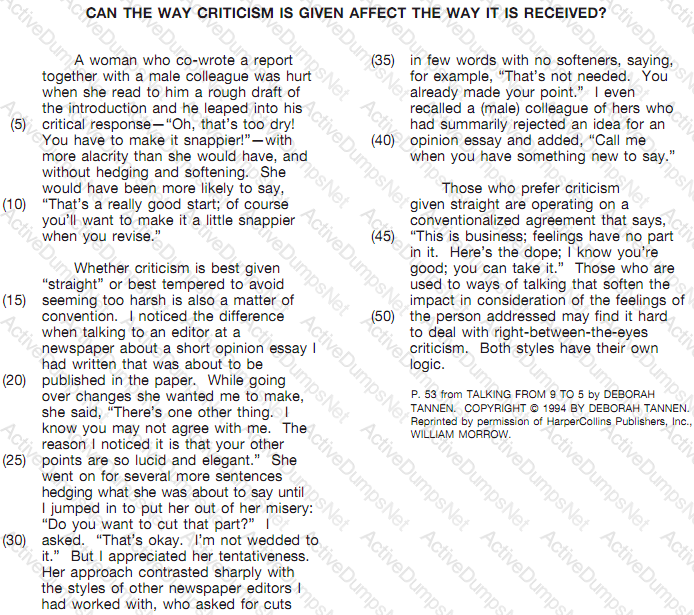
-- Exhibit --
How might an individual who believes in "straight" criticism best be characterized?
-- Exhibit–
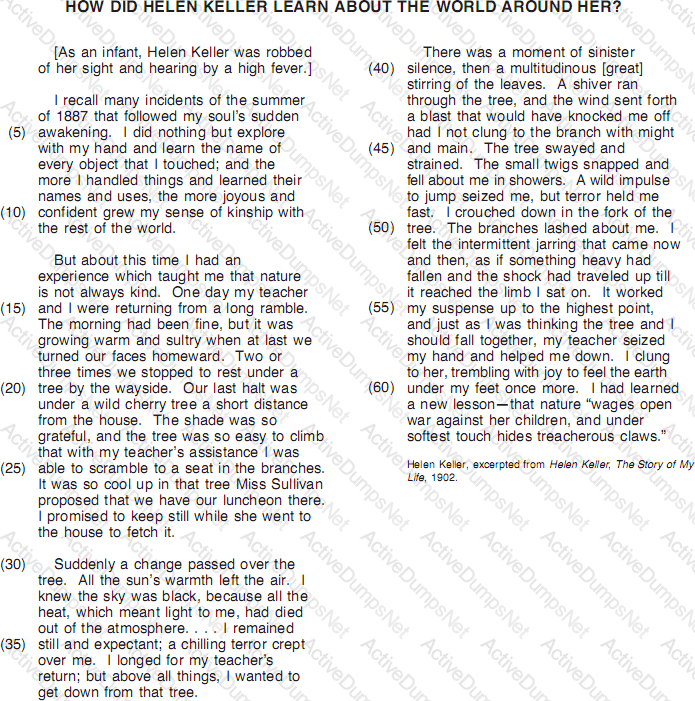
-- Exhibit --
From the excerpt, what can we assume was Helen’s attitude toward nature before the storm?
-- Exhibit–
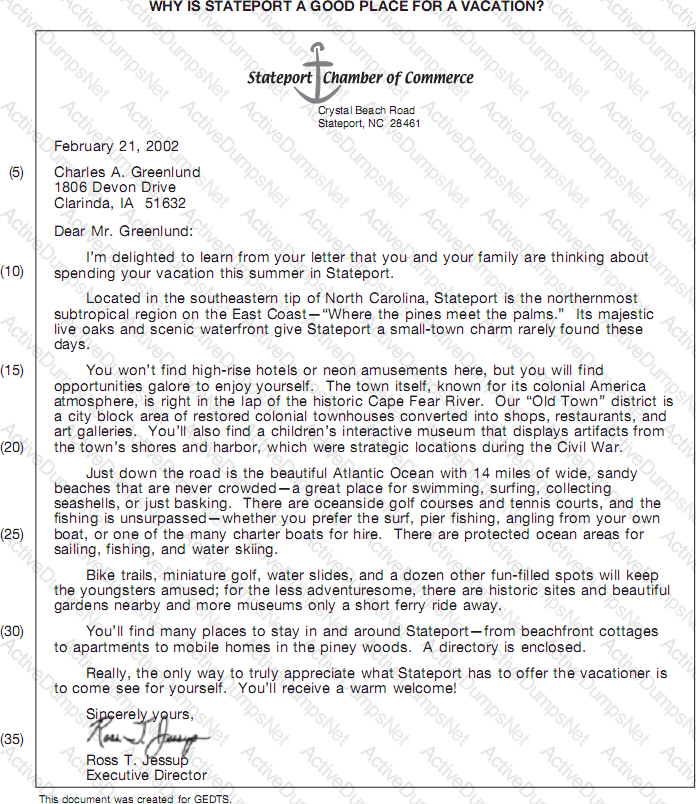
-- Exhibit --
Which aspect of Stateport would most likely attract a historian who is doing research?
